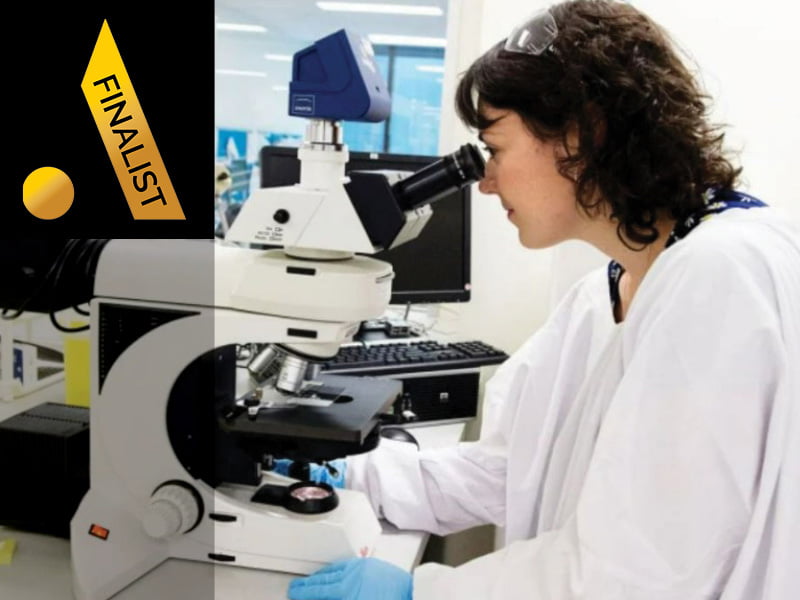It is hard to imagine that scientists only finished mapping the human genome in 2003. In less than two decades we have gone from translating that very first human instruction manual to sophisticated medical diagnostic and even ubiquitous commercial use.
Tests today can screen for inherited risk of breast and ovarian cancer, Parkinson’s or coeliac disease, but one of the areas where genetic testing is most urgent is in the care of infants and children suffering from often rare genetic disorders.
It is these most pressing cases that the researchers and physicians working with the Acute Care Genomics project have dedicated their efforts.
“We have been on a journey over the past ten years, trying to transition the testing and make it more and more clinically relevant,” says project co-leader, Professor Zornitza Stark of the Victorian Clinical Genetics Services (VCGS).

The Acute Care Genomics project was established by the national government-funded research network, the Australian Genomics Health Alliance. The project is led by investigators from VCGS – the pioneering genetic services arm of Murdoch Children’s Research Institute in Melbourne.
The Murdoch Children’s Research Institute is a finalist – via the VCGS – in the MedTech and BioTech category of the InnovationAus 2021 Awards for Excellence.
“Five years ago, this type of testing was still taking six to nine months to complete,” Professor Stark explains.
“What we have done is manage to shorten that very considerably, and not just that, to do that in a very reliable way so that it can benefit hundreds of patients from around the country on-demand when it is needed.”
Initially, the team set out to push the existing technology to its limits, attempting to establish protocols that could streamline those processes and make them as fast as possible.
“We brought it down from months to eight or nine days,” explains fellow co-lead, Associate Professor Sebastian Lunke. “But at that stage we hit a wall. At that stage we knew we had to do something radically different.”
Professor Lunke says their own team and a host of international collaborators and colleagues performed a meticulous and painstaking analysis to work out where changes needed be made, redesigning the processes “from the ground up”.
The Acute Care Genomics project test is now one of only two in the world that can now complete this complex diagnostic testing and analysis in just three days.
While the testing itself has very broad applications and can be used in all sorts of healthcare settings to answer a variety of questions, this specific program is focused on babies and children in intensive care units with very rare diseases.
“You can think about the genome as a book filled with 3.2 billion letters and we find the typo, but just because we know the typo is there we don’t know if that typo is in a word that matters,” explains Professor Lunke.
“We filter through a lot of data, a lot of noise, to try and find things that may cause the disease in a child. In some cases, we have diagnosed children with diseases in genes that were, up till them, pretty much unknown.”
In these cases, a rapid diagnosis is crucial and can be, not only lifesaving, but also prevent months or even years of unnecessary suffering by allowing access to precision treatments, fast. In some instances, the testing has been able to connect patients and families grappling with extremely rare diagnoses across the world for help with prognosis, treatment exploration and support.
The Acute Care Genomics project’s ultra-rapid genetic testing is now available to all Australian children’s hospitals.
The Murdoch Children’s Research Institute is a finalist in the inaugural InnovationAus Awards for Excellence through its pioneering genetics services arm, the Victorian Clinical Genetics Service (VCGS).
You can reserve your seat at the InnovationAus 2021 Awards for Excellence here.
Do you know more? Contact James Riley via Email.
